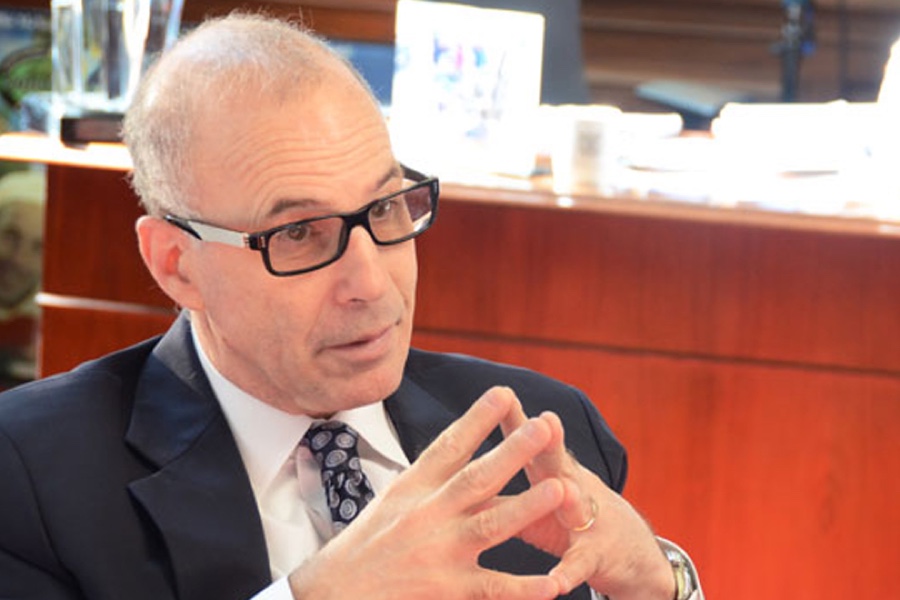Why the FTC Wants to Block the Jefferson-Einstein Merger
One expert says the the Federal Trade Commission's complaint is itself enough to kill the proposed deal.

Jefferson president and chief executive officer Stephen K. Klasko | File photo
Last week, the Federal Trade Commission (FTC) and the Pennsylvania Office of the Attorney General filed a complaint in federal district court that argues against the proposed merger of Jefferson Health and the Albert Einstein Healthcare Network.
The complaint defines the proposed merger as unlawful, claiming it would eliminate the competition between Jefferson and Einstein that has historically led to lower costs and better outcomes for patients.
“Patients in the Philadelphia region have benefitted enormously from the competition between the Jefferson and Einstein systems,” said Ian Conner, director of the FTC bureau of competition. “This merger would eliminate the competitive pressure that has driven quality improvements and lowered rates.”
Jefferson and Einstein are leading providers of inpatient general acute care hospital services and inpatient acute rehabilitation services in both Philadelphia and Montgomery counties. The two signed a definitive agreement to merge in September 2018. If the merger were to go through, the deal would create a massive 18-hospital health system, with more than 3,600 beds and 38,000 employees.
Since Stephen Klasko took the helm as president and chief executive office of Jefferson in 2013, the ambitious leader has gone on what some have called an acquisition spree. In May 2015, Jefferson merged with Abington Health. The following year, in July 2016, Jefferson acquired a controlling interest in the Rothman Orthopaedic Specialty Hospital in Bensalem, and in the same month, merged with Aria Health. Then in September 2017, Jefferson merged with Kennedy Health, followed by a merger with Magee Rehabilitation in January 2018. The FTC contested none of those mergers.
Mark Pauly, a professor of health care management, business economics and public policy at Wharton, says the mere fact that the FTC has filed to contest the merger could mean the deal is headed toward certain demise.
“Often, the FTC challenging a merger is enough to kill the merger,” Pauly said. “Unless there’s a burning reason Jefferson thinks it needs this and can prove it needs this, it’s likely to sink.”
Jefferson and Einstein issued a joint statement expressing their continued optimism that the deal will ultimately be approved.
“We believe we have presented a strong and comprehensive case as to how the merger would benefit the patients we serve and advance our academic mission without reducing competition for healthcare services,” the two health systems said in a statement. “We remain confident our merger will result in continued high-quality care for our consumers.”
But Pauly points to a similar case in Chicago where Advocate Health Care and NorthShore University Health System walked away from plans to merge in 2017 after a federal judge’s ruling granted the FTC and the state of Illinois’ request for a preliminary injunction to temporarily stop the merger.
According to Pauly, government agencies, in that case, had similar concerns that the proposed merger would reduce competition to the detriment of patients—the same concern the FTC has raised in the Jefferson-Einstein complaint.
“Merger partners always promise higher quality, but they are rarely able to deliver on that promise,” Pauly said. “Jefferson’s case sounds very much like the NorthShore case, and the FTC won that one.”
The FTC’s complaint in the NorthShore case ultimately led both parties to walk away from the deal but not before fighting in court for more than a year. Jefferson and Einstein have a similar course ahead.
According to the FTC, Jefferson and Einstein have 14 days from the date of the complaint to file a response that either contests or agrees with the allegations made in the commission’s complaint.
If Jefferson and Einstein file a response with intent to continue the merger, they’ll spend the next six months preparing to argue their case at an FTC hearing that has been set for September 1, 2020.


